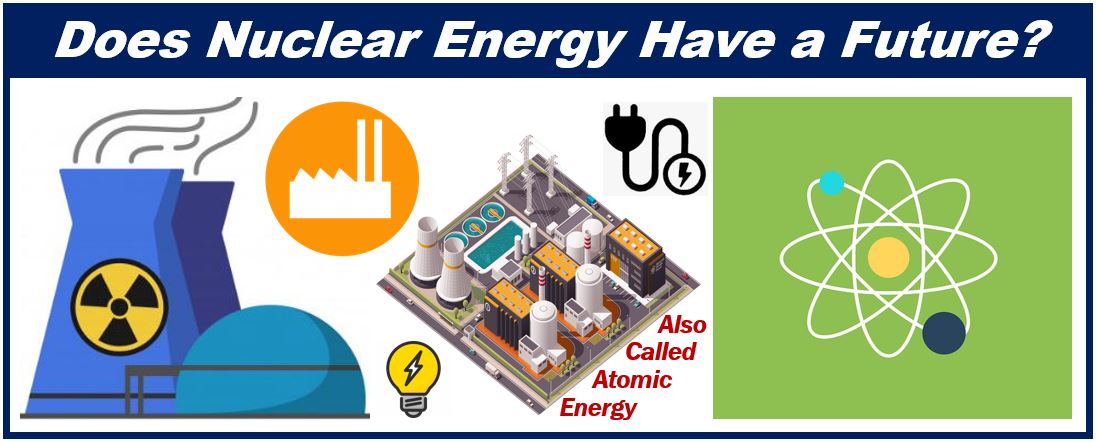As World War II came to a close in the 1940s, the prospect of nuclear energy suggested an appealing, peaceful way to repurpose the cutting-edge weapons technology developed during the global conflict into an affordable energy source. When gas and oil prices skyrocketed in the early 1970s, interest escalated and governments around the world began investing in nuclear energy alternatives.

Heightened interest in nuclear energy lasted just over a decade, until a series of prominent nuclear plant accidents (Pennsylvania’s Three Mile Island accident in 1979, Chernobyl’s nuclear disaster in 1986, and Fukushima’s nuclear accident in 2011) presented new questions and concerns, consequentially lessening interest in the energy form.
As of now, most nations have lessened their focus on nuclear energy in favor of coal, gas or renewables—but are they right to abandon the promise of nuclear energy? To answer the question, we have asked an opinion of Turab Musayev who has worked in the field of energy for the last 15 years.
Benefits of Nuclear Energy
Each energy source has its own risks and rewards. Nuclear fission releases several million times more energy than any chemical reaction could, making it powerful but also unstable. While the concerns that have surfaced regarding its safety are valid, nuclear energy’s many benefits also demand recognition.
When it comes to traditional energy sources, for example, nuclear energy generates significantly less harmful greenhouse emissions. Unlike other energy forms, nuclear energy does not produce methane and carbon dioxide, meaning it’s significantly better for the environment.
In fact, according to a 2013 study done by NASA, the power provided by nuclear energy has prevented approximately 1.8 million deaths just between the years of 1976 and 2009—even when accounting for the death tolls of nuclear incidents such as Chernobyl. It’s also powerful, efficient and relatively affordable to manufacture.
Despite its many benefits, Turab Musayev highlights that many nations have demonstrated a reluctance to advance their nuclear programs, opting to rely on fossil fuels or renewables for most of their energy needs. Although nuclear power plants are currently operating in 30 countries, nuclear energy still only meets about 10% of energy needs globally.
The Shortcomings of Renewables and Gas
In considering whether nations across the globe are right in turning away from nuclear energy to prioritize renewables and gas, it’s essential to consider a holistic approach which accounts also for the shortcomings of these energy forms. When it comes to fossil fuels, the primary concern is the commodity’s finite nature. Outside of other prominent environmental concerns, these energy forms are also known to release sulfur dioxide gas when burned, which causes health complications and contributes to acid rain.
In recent years, renewable energy resources such as solar, wind, geothermal and hydroelectric energy have gained popularity as more sustainable alternatives to fossil fuels. While promising on the surface, these energy forms present their own distinct challenges: they’re often unreliable, have high initial production costs, and often require significantly more management and upkeep.
Wind, for example, relies on magnet-brush systems which are highly toxic to refine. Similarly, the turbines kill off large populations of birds which creates imbalances in local ecosystems.
Nuclear Energy – The Bottom Line
“No way of sourcing energy is perfect,” highlights Turab Musayev. Whether a nation moves forward with fossil fuels, renewables or nuclear energy, there are going to be both advantages and disadvantages. The best solution will likely be a tailored combination of all three, which uses each to its own strengths while minimizing their respective dangers. That said, nuclear energy’s many benefits suggest that it’s worth revisiting as a prominent energy source.
Of course, the questions concerning nuclear energy’s safety are valid. However, the capabilities of technology have evolved massively since accidents like Chernobyl and Fukushima. Though tragic, disasters such as these should be recognized for what they were: preventable mistakes. With further research and modern tools, Turab Musayev believes nuclear energy will become both safer and more cost-efficient.
These projected developments, hopefully, will lead the world’s nations to reconsider nuclear energy as a valuable energy source. “I believe that nuclear energy has a place in the global energy model,” notes Musayev. In the coming years as we learn how to best capitalize on its many strengths, he hopes more nations will recognize nuclear energy as the valuable resource that it is.
Interesting related article: “What is Renewable Energy?“

